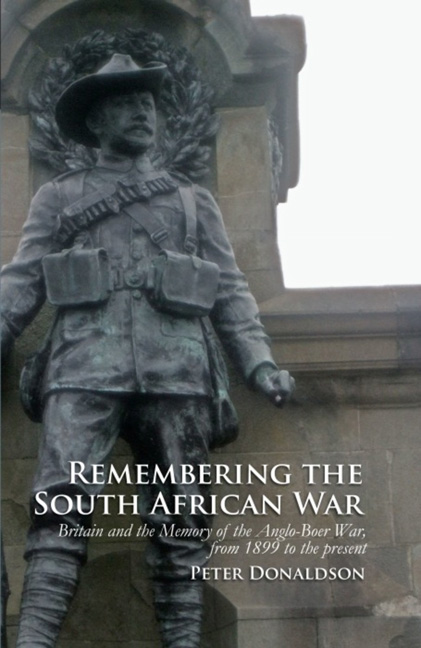 Remembering the South African War
Remembering the South African War Book contents
- Frontmatter
- Dedication
- Contents
- List of Illustrations
- Acknowledgements
- Introduction
- 1 Civic War Memorials: Public Pride and Private Grief
- 2 Pro Patria Mori: Remembering the Regiment
- 3 Vitai Lampada: Remembering the War in Schools
- 4 Alternative Affiliations: Remembering the War in Families, Workplaces and Places of Worship
- 5 Writing the Anglo-Boer War: Leo Amery, Frederick Maurice and the History of the South African War
- 6 Filming the War: Television, Kenneth Griffith and the Boer War
- Conclusion
- Bibliography
- Index
6 - Filming the War: Television, Kenneth Griffith and the Boer War
- Frontmatter
- Dedication
- Contents
- List of Illustrations
- Acknowledgements
- Introduction
- 1 Civic War Memorials: Public Pride and Private Grief
- 2 Pro Patria Mori: Remembering the Regiment
- 3 Vitai Lampada: Remembering the War in Schools
- 4 Alternative Affiliations: Remembering the War in Families, Workplaces and Places of Worship
- 5 Writing the Anglo-Boer War: Leo Amery, Frederick Maurice and the History of the South African War
- 6 Filming the War: Television, Kenneth Griffith and the Boer War
- Conclusion
- Bibliography
- Index
Summary
IN her study of the presentation of the Great War in television documentaries, Emma Hanna notes that such histories serve much the same purpose as war memorials. Both, she argues, are carefully constructed representations of the past, artfully composed so that the story they portray ‘will be accepted in the moment of their creation and by the society for whom they are created’. But here Hanna is ploughing a lone furrow. Invariably, the small screen, as distinct from cinema, is ignored by cultural historians, dismissed as nothing more than mere entertainment. Yet, the past enshrined in historical documentaries has an immediacy, power and influence that no single monument or, for that matter, written history, could ever attain. Indeed, so all pervasive is television that many academic historians fear that it undermines the public's ability to appreciate the complexity of historical events by propagating inaccuracies and myths, an ‘agreed’ version of the past. Simon Schama has neatly summarised such academic navel-gazing as:
the usual moan of the Common Room and the opinion columns that ‘serious television’ is a ‘contradiction in terms’; that the subtlety of history is too elusive, too fine and slippery to be caught in television's big hammy fist; that try as it might, television can't help but simplify the complications; personalise the abstract; sentimentalise the ideological and just forget about the deep structure – all of which are assumed to be at the heart of what my colleagues (on that side of the fence) like to call real history.
In articulating these fears, academics are not only tacitly admitting to the power of television but also acknowledging the influence that the medium has in shaping public memory. Such power has, unsurprisingly, long been appreciated by those within the television industry. Producers and directors have consistently maintained that the medium is particularly suited to the broadcasting of history, as its strengths lie in ‘telling stories and anecdotes, creating atmosphere and mood, giving diffuse impressions’.
- Type
- Chapter
- Information
- Remembering the South African WarBritain and the Memory of the Anglo-Boer War, from 1899 to the Present, pp. 152 - 169Publisher: Liverpool University PressPrint publication year: 2013


